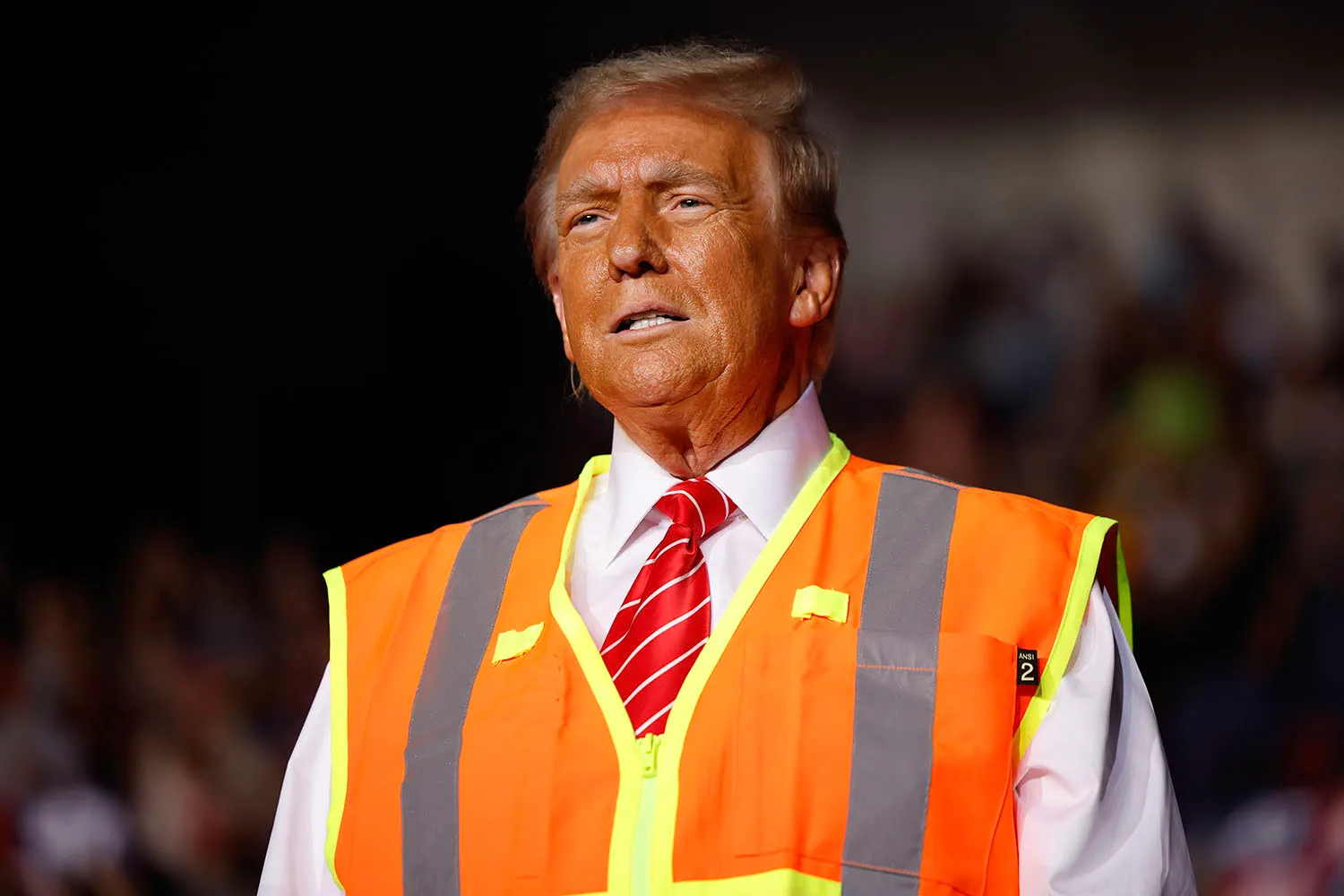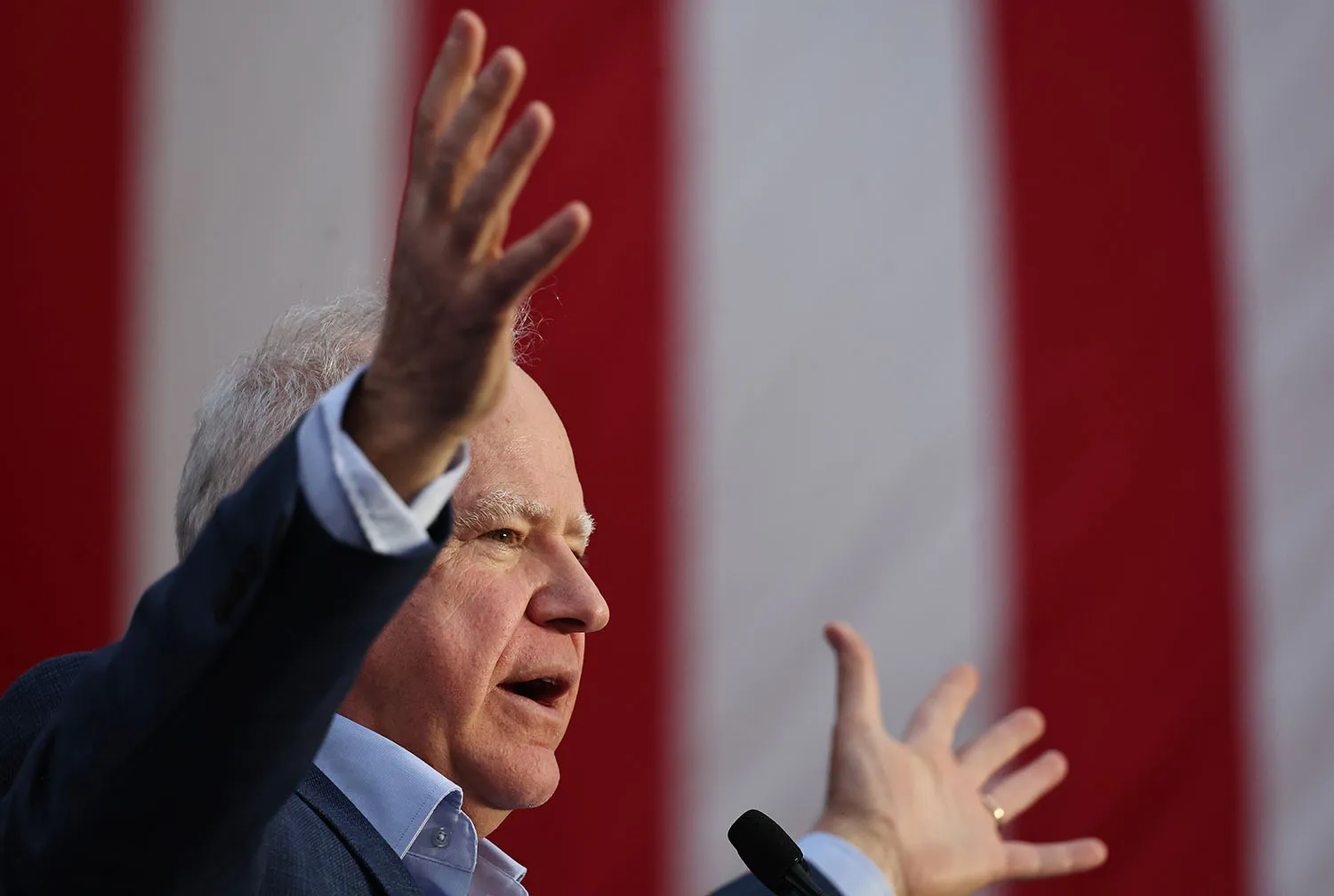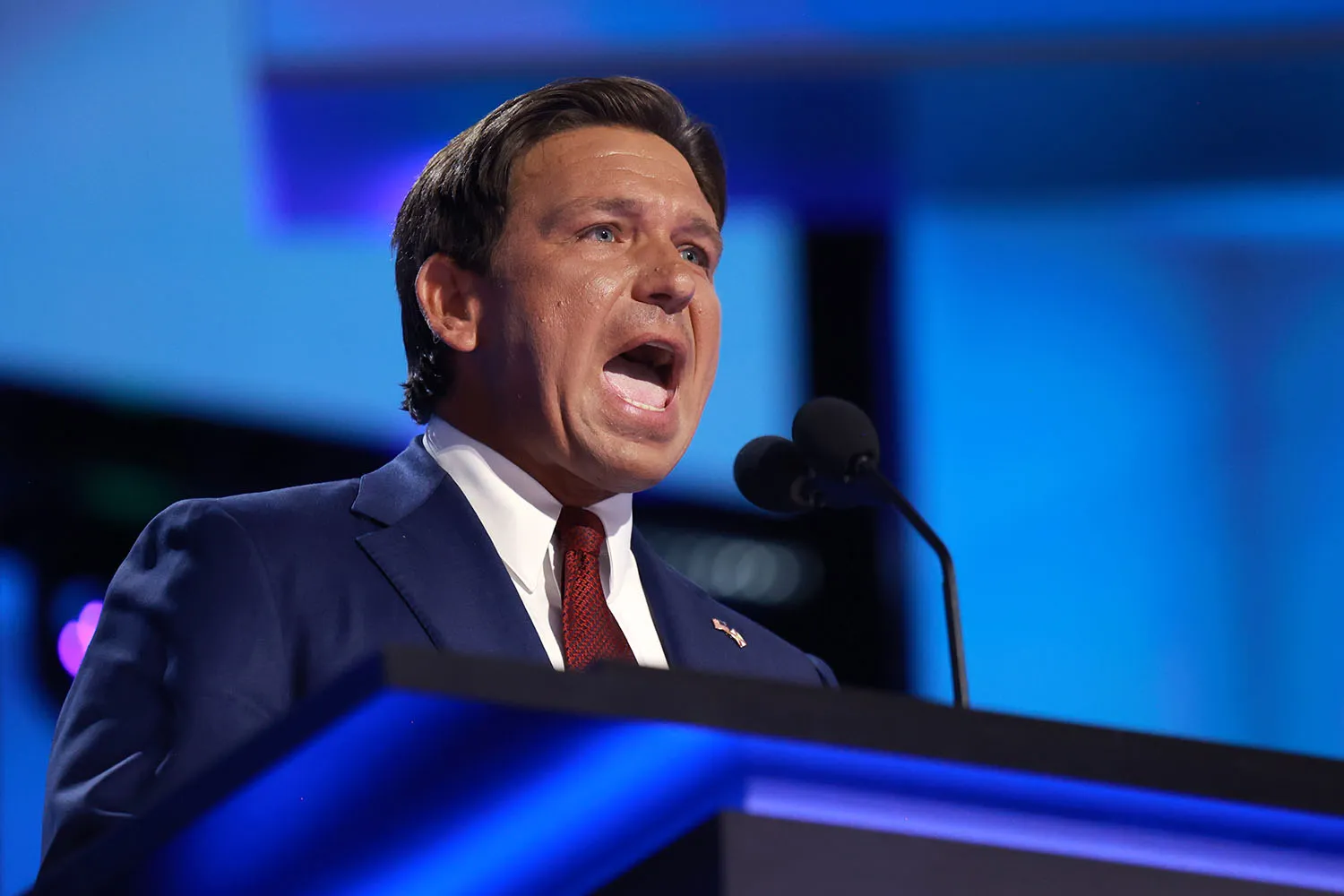Why Men’s Makeup Matters in Politics
In presidential elections, success can sometimes come down to appearance.
In September 1960, Sen. John F. Kennedy and Vice President Richard Nixon arrived at WBBM-TV studios in Chicago to participate in the first televised debate between two major U.S. presidential candidates. Physically exhausted from a taxing campaign schedule, Nixon was pale and worn out, but he turned down a makeup artist’s offer to freshen him up.
When the cameras started rolling, the combination of the hot studio lights and multiple layers of clothing—suit, shirt, and tie—made Nixon start to perspire. As beads of sweat formed on his face and his eyes darted back and forth to a clock just off camera, he looked shifty and nervous to 65 million viewers. By contrast, Kennedy, the challenger, appeared fresh-faced and confident. It’s still a matter of debate whether Nixon’s appearance that night cost him the election, but since then, politicians rarely leave things to chance.
In September 1960, Sen. John F. Kennedy and Vice President Richard Nixon arrived at WBBM-TV studios in Chicago to participate in the first televised debate between two major U.S. presidential candidates. Physically exhausted from a taxing campaign schedule, Nixon was pale and worn out, but he turned down a makeup artist’s offer to freshen him up.
When the cameras started rolling, the combination of the hot studio lights and multiple layers of clothing—suit, shirt, and tie—made Nixon start to perspire. As beads of sweat formed on his face and his eyes darted back and forth to a clock just off camera, he looked shifty and nervous to 65 million viewers. By contrast, Kennedy, the challenger, appeared fresh-faced and confident. It’s still a matter of debate whether Nixon’s appearance that night cost him the election, but since then, politicians rarely leave things to chance.
Though politics should just be about policy, it’s undeniable that appearances matter. The ways that politicians dress can influence voters’ perceptions, which is why candidates running for office have tried to dress down to seem more relatable since the 1970s. After Watergate, politicians slowly started to molt the layers of their coat-and-tie uniform.
First, Jimmy Carter, George H.W. Bush, and Bill Clinton campaigned in just a shirt and tie (no jacket); in the 2010s, Barack Obama and Mitt Romney commonly campaigned in just a dress shirt (no tie). When Florida Gov. Ron DeSantis sought the Republican presidential nomination last year, he ditched the dress shirt entirely, opting for a fishing shirt instead.
A less recognized element of political appearance is cosmetics, which is ironic since gender presentation is now a hotly contested political issue. The men who debate traditional masculinity on TV are often wearing powder, concealer, and eyeliner themselves. Of course, the hidden nature of cosmetics is sometimes by design. “My goal as a makeup artist is to remove anything that might be a distraction,” said Misha Lewis, the founder of the Washington-based hair and cosmetics firm Misha Renee Artistry. “If the makeup is noticeable, then it also becomes a distraction. The point is to make sure the audience focuses on the person’s message, not something on their face.”
Lewis did hair and makeup for CNN for 11 years and for Al Jazeera before that, which means she has brushed up most men in Congress. Her clientele has included President Joe Biden, the late Sen. John McCain, former House Speaker Newt Gingrich, former Secretaries of State John Kerry and Mike Pompeo, former Sen. Bob Menendez, and Rep. Matt Gaetz.
Today, Lewis is the sole hair and makeup artist for Secretary of State Antony Blinken, who wears cosmetics not only on TV but at any event where he expects to have his photo taken.
For many men, the thought of a brush gently passing over their cheekbones can stir up uncomfortable gender anxiety. When this happens, Lewis offers counsel. “I always tell them, ‘The camera has no friends, and you won’t be the first,’” she said. She often has only a few minutes to cover up blemishes, fill in patchy beards, vanquish dark circles and puffy eyes, and fix oily skin. “People are hypercritical,” Lewis added. “If a man is bald, his head might shine because of the studio lights. People are going to see that first and then miss what they said.”
We asked Lewis to review what men on both sides of the aisle get right—and wrong—about cosmetics and how these issues may affect how people view each political figure.
Former President Donald Trump
Lewis suspects that Trump uses a combination of concealer and bronzer, but he applies it excessively and incorrectly, which is why the orange tint of his skin is a frequent topic of conversation. “His skin has a lot of texture, particularly on his nose and between his brows. When selecting a foundation for someone, it’s crucial to select not just the appropriate color but also the appropriate formula that can effectively conceal the texture,” she said, adding that Trump’s uneven application reveals his true skin color under his eyes and just in front of his ears.
If Lewis were working on Trump, she would neutralize the areas where he is uneven and apply makeup in a color that’s closer to his true skin color. “He clearly likes to be darker, so I would warm his skin up but not make it so artificial-looking,” she said.
President Joe Biden
U.S. President Joe Biden takes part in a presidential debate at CNN Studios in Atlanta on June 27. Justin Sullivan/Getty Images
In the most consequential debate this election cycle, Biden failed to convince Americans that he was fit for the job. He often looked lost, slack-jawed, and stumbled through questions, adding to suspicions that he was too old for a second term. It didn’t help that the color looked drained from his face. Lewis suspects that the makeup artist that night might have unintentionally covered up his natural color. “He looked extremely pale, which was surprising because he actually has quite a bit of color to his natural skin,” Lewis said. “He also looked a little uneven, like someone tried to highlight his cheekbones.”
Had Lewis done Biden’s makeup that night, she would have given him just a little powder so he wouldn’t look too light and then checked the color monitors to determine if she needed to do anything else.
Sen. J.D. Vance
Republican vice presidential nominee J.D. Vance speaks during a rally in Waterford, Michigan, on Oct. 24. Brandon Bell/Getty Images
Since Sen. J.D. Vance became the Republican vice presidential nominee, rumors have swirled that he wears eyeliner (or, mockingly, “guyliner”). In early August, his wife, Usha Vance, addressed these rumors in a written statement to Puck News. “They’re all natural,” she wrote. “I’ve always been jealous of those lashes.” Even Vance’s running mate has expressed admiration for his “beautiful” blue eyes and long eyelashes.
Lewis concurs and thinks Vance’s eyes are au naturel. “If he were wearing eyeliner, it would run or smear at some point,” she said. “It wouldn’t be a perfect line under his eyes. … So many men and little boys have those perfect eyelashes. He looks pretty nice on air.”
Gov. Tim Walz
Democratic vice presidential nominee Tim Walz speaks during a campaign rally in Tucson, Arizona, on Nov. 2. Mario Tama/Getty Images
Minnesota Gov. Tim Walz has brought a unique energy to Democratic presidential nominee and Vice President Kamala Harris’s campaign, in part because he has branded himself as an everyday, straight-shooting Midwesterner. At rallies, he does the work of hyping up the crowd for his running mate and encouraging people to get out and vote. But halfway through many of his stump speeches, Walz often turns beet red as he gets fired up.
“He gets a little overheated when he talks,” Lewis said. “I don’t think they control or mattify the oil in his skin before they apply makeup on him.” If Lewis worked on Walz, she would apply a neutralizer as a primer and then an airbrush foundation with a formula that wouldn’t break down when he starts sweating. “You can use a green cream as a neutralizer on someone who turns red easily, and once it goes on, you can’t see it,” she said.
Rep. Matt Gaetz
U.S. Rep. Matt Gaetz speaks at the Republican National Convention in Milwaukee on July 17.Chip Somodevilla/Getty Images
When Rep. Matt Gaetz took the stage at the Republican National Convention in July, social media lit up with suspicions that he had gotten Botox. His cheekbones looked pronounced; his arched brows were very shapely. However, Lewis believes that the makeup artist might have just overdone it due to time constraints. “I think they just filled in his brow way too much. I also wouldn’t have given him any kind of bronzer or blush on his cheeks,” she said.
Gaetz’s unusual appearance that night is a perfect example of how improperly applied makeup can create the same kind of distraction as not wearing anything at all, ultimately taking attention away from the person’s message.
Gov. Gavin Newsom
California Gov. Gavin Newsom speaks in Philadelphia on Sept. 10. Bryan Dozier/Variety via Getty Images
Before and after every presidential debate, prominent voices from both parties speak to the press to spin the best possible story for their candidate. Shortly before Harris and Trump took the stage in early September, California Gov. Gavin Newsom was already predicting a Democratic victory. He wore his usual uniform: a navy suit with a white collar shirt and sober blue tie. However, his face could have used a little more color, according to Lewis.
“When it comes to makeup, you have a winter/spring color and summer/fall color,” Lewis said. Newsom’s face that day lacked the warmth that one would have expected for an early September event, she observed. Had she done his makeup, she would have applied something sheer and just a touch of powder, leaving his natural color to shine through.
Gov. Ron DeSantis
Florida Gov. Ron DeSantis speaks at the Republican National Convention in Milwaukee on July 16. Joe Raedle/Getty Images
When DeSantis campaigned for the Republican nomination last year, rumors spread that he wore height-boosting lifts inside his black cowboy boots. Since DeSantis has become one of the fiercest anti-LGBTQ+ legislators, the suggestion that he was walking around on his tiptoes gave his critics ammunition.
It turns out that the governor might also be wearing cosmetics. “In this photo, he’s just wearing way too much makeup,” Lewis said. “Someone drew in his brow too heavily; he’s also wearing layers of foundation, powder, and concealer, which is making things look thick.”
Lewis said all he needs is someone to remove the oil from his skin, apply an anti-shine cream, and airbrush a special skin-finish foundation. “The foundation has a blurring effect, so it reduces the fine lines when someone is on camera,” she said.
This post is part of FP’s live coverage with global updates and analysis throughout the U.S. election. Follow along here.
Derek Guy is a menswear writer with bylines in the New York Times, the Washington Post, and Esquire. He is the author of the menswear blog Die, Workwear.
More from Foreign Policy

What Trump’s Win Means for U.S. Foreign Policy
He is poised to bring back hallmarks of his first term, from a China trade war to hostility toward multilateralism.

Why She Lost
Despite a platform focused on winning back the working class, Kamala Harris and her party had lost too many of them already.

Trump’s Foreign-Policy Influencers
Meet the 11 men whose worldviews are shaping the 2024 Republican ticket.

The 10 Foreign-Policy Implications of the 2024 U.S. Election
What to think about Trump 2.0.










Join the Conversation
Commenting on this and other recent articles is just one benefit of a Foreign Policy subscription.
Already a subscriber? .
Subscribe Subscribe
View Comments
Join the Conversation
Join the conversation on this and other recent Foreign Policy articles when you subscribe now.
Subscribe Subscribe
Not your account?
View Comments
Join the Conversation
Please follow our comment guidelines, stay on topic, and be civil, courteous, and respectful of others’ beliefs.